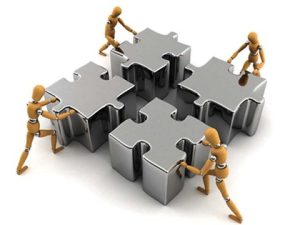Building a team is easy. All you do is hire people that you like, put them all into a group and the team will form. Or is it that simple?
As a society, we have been inundated with sports highlights of the stars making a great shot, the great play, the ESPN or TSN play of the game. This has trained us to think that everything is accomplished by the LeBron James or Sidney Crosby of the game. If we really study the whole game, practices, season and careers, we will begin to see quite a different formula of success.
I had the unbelievable fortune of learning how to train, develop and build successful teams over a 25-year career in the financial services industry and a 17-year coaching career for my children’s sports teams. The cross training was completely applicable.
My very first hire was an experience in which the candidate that I hired disappeared every second week when compensation was paid. It turned out she had a severe gambling addiction and required a large amount of care and attention to get her on the right track. Over the ensuing years of my development, I learned what worked, what didn’t work, and I continue to grow and develop as a leader. As I came to the end of my 25-year career, applying these learnings had placed our Alberta region as the top region in Canada for Great-West Life Sales and Marketing Centres in 2010, 2011 and 2012. This was with 70 employees who had developed over 1,000 advisor relationships in four city locations.
As I looked in the rearview mirror for characteristics of successful teams I discovered five characteristics of success that, either by design or default, we installed in our organization.

- Hire Great People
If you study tendencies in the hiring process; leaders spend their time hiring for competence (resume, experience, network, etc.) and we almost always fire for character (attitude, effort, integrity, etc). Spend more time hiring for character, and train and develop for competence.
- Create an environment in which they can be their absolute best
What would your results look like if you had everyone working at their optimum level for most or all of their day, every day? When are you at your best? Typically it is when you are focused, but not worried about mistakes or failing. When we win we party, when we lose we ponder.
- Have a plan built on the “Why” first … then the “What” and “How”
Simon Sinek really has people thinking about the “Why” of their business. The why of the business is the overarching purpose that goes beyond logic and details. The “why” is easily developed and articulated through planning and internal business reflection. Every position should have a statement as to how their role serves the “Why”.
- Focusing and Executing with precision
The clearer the “Why”, the easier it is to put your plan in place. Everyone now knows why they are doing their role, and as a result, you can develop the “how” and the “what” for each person.
- Celebrating Success
You have to know what success is, know how to get there, and know how to celebrate it when you’ve achieved it. You have to know what “right” is, and then catch people doing it right. You have to care and you have to connect.
What kind of environment are you creating on your sales and service teams?



